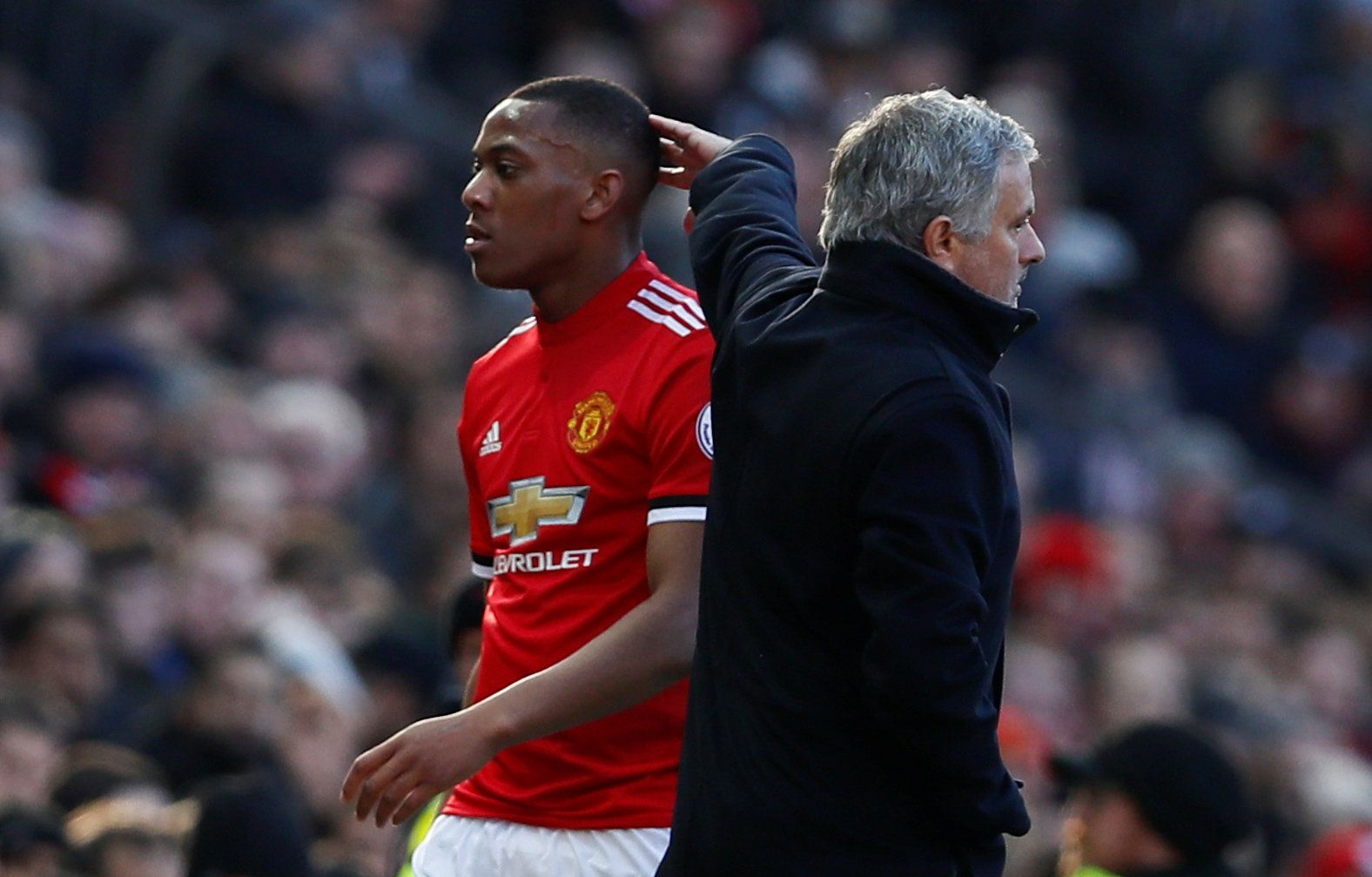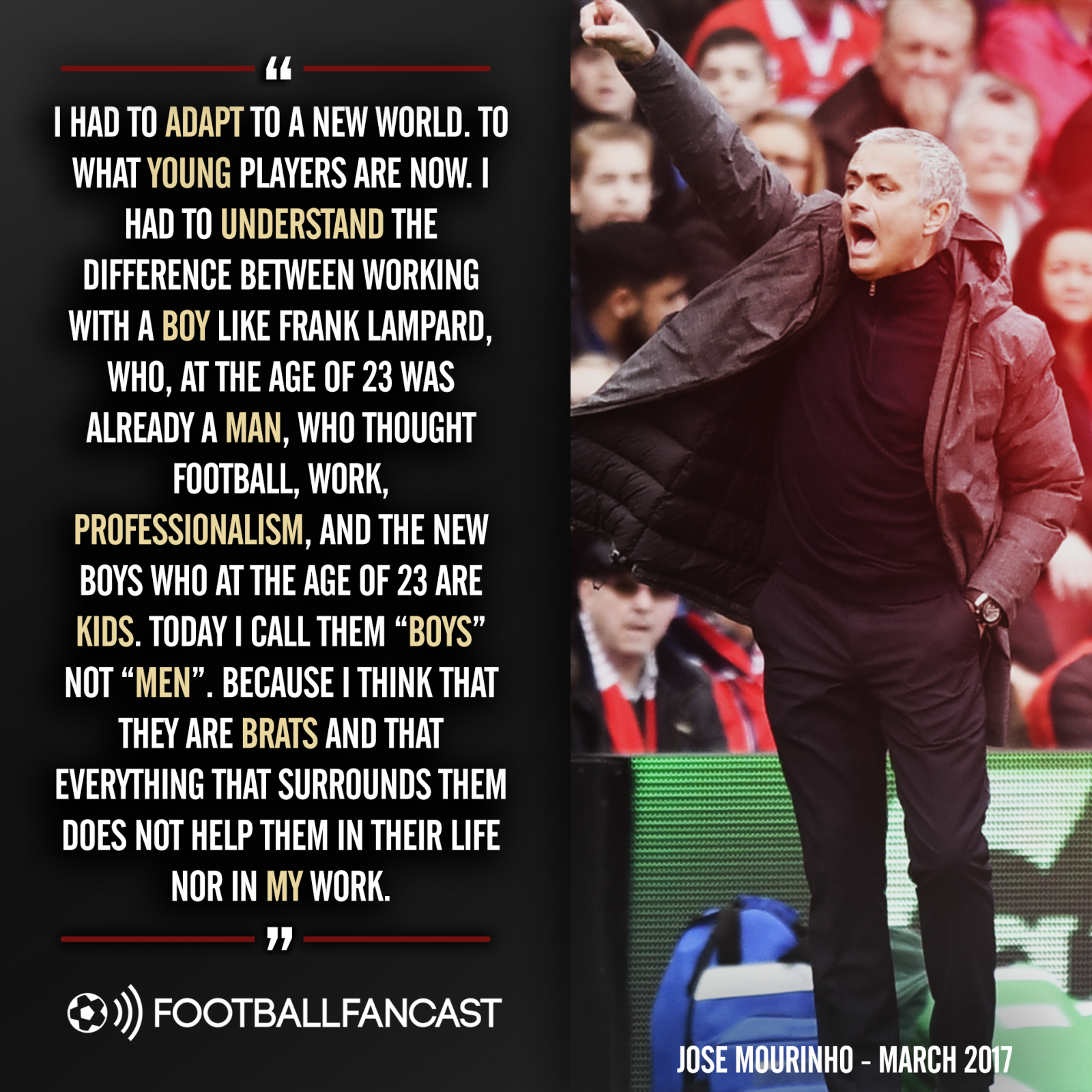No two transfer stories better encapsulate Jose Mourinho's mindset than confirmation Anthony Martial wants to leave Old Trafford this summer and reports alleging Manchester United will launch a £60million bid for Chelsea's 29-year-old winger Willian.
As one young forward struggles to make his mark under the restrictive Portuguese, he looks to bring in an older alternative whose Premier League career has been founded as much on work-rate and energy as technical quality and output.
This isn't a condemnation of Willian, who is no doubt a top-level talent, and a move for the Blues winger makes sense for a few key reasons. Firstly, he can solve the most problematic position in Manchester United's forward line; while there are too many options on the left since the January arrival of Alexis Sanchez, something Martial's presence directly contributes to, there aren't really any convincing ones on the right - so swapping the Frenchman for Willian instantly improves the balance of United's squad.
Secondly and probably more significantly, the South American has already shown he can thrive not only within the framework of Mourinho's philosophy, but also under the leadership of a gaffer whose man-management style is proving increasingly divisive.
What do you think of the World Cup so far? Let us know and win any World Cup shirt of your choice.
In many ways though, that only highlights the crux of the issue. All but two of Mourinho's eight United signings were aged 23 or older when they arrived at the club, all but three were aged 24 or older and three of those were aged 28 or older - the oldest, Zlatan Ibrahimovic was 35.
Willian belongs in the latter category, and more than footballing ability or proven track-records it appears to come down to a question of generational mindsets, something Mourinho's own comments from March 2017 insinuate. "Today I call them 'boys' not 'men'. Because I think they are brats..." the Old Trafford boss told journalists last year, comparing Frank Lampard's level of maturity at the age of 23 to those of his current players.
It's unquestionably true that football has changed since then. It seems to produce less leaders; less players who respond so vehemently to the hairdryer treatment, less players prepared to play through injuries, less players who don't need adoration of fans and social media followers to inflate their egos, less players who are prepared to win at all costs. Pure individualism has taken over, and almost every high-earning player seems to have their own agendas and personas to protect - many of which don't easily align with the objectives of their current clubs or managers.
The problem, however, is how time stands still for no man. The world constantly evolves and for Mourinho to continually battle against the consequence of ageing is as fruitless a task as searching for the Fountain of Youth. The generation Mourinho yearns for - Lampard, John Terry and Didier Drogba - are already petering into extinction, and even the one that was incorporated into his second and far less successful Chelsea spell, the likes of Willian, Cesc Fabregas and Nemanja Matic, are reaching the end of their peaks.
So what next for Mourinho when these players encroach upon retirement? Who will he turn to when he wants someone to show the brattish kids how its done?
The other key issue relates to playing style, a delicate subject already in the red half of Manchester. On the blue side, Pep Guardiola has created something special with young players in crucial attacking positions like Leroy Sane and Raheem Sterling. At Liverpool, Jurgen Klopp has done something similar with Sadio Mane, Mohamed Salah and Roberto Firmino - all aged 26 or under.
Young players bring fearlessness and energy to team, something United desperately seem to lack under Mourinho, but are developed around fresh tactical and technical advancements.
From the fan's perspective, they're always more likely to show us something that we've never quite witnessed before; the capabilities of players like Willian and Matic have been well-documented, praised and scrutinised for years. They can't create that aura of prodigious invincibility in quite the same way.
From a managerial perspective too though, Mourinho's approach seems counter-intuitive. The greatest advantage of working with young players, as the likes of Guardiola and even Louis van Gaal will attest, is how they haven't already developed bad habits and how they don't have prior experience to make comparisons that would question a manager's wisdom. They tend to follow instructions blindly, even if inexperience can get the better of them at times.
[ad_pod ]
That's generally how betters ways of tactical thinking and playing are developed, by using young and adaptable players - Mauricio Pochettino's Tottenham side are a fantastic example. But Mourinho seems so strangely resistant to that approach; he only wants players who will work around his tried and trusted formula, professionals who will get the job done.
But just like before in regards to generational mindsets, eventually those kinds of players will run out and those tactical ideas will lack modern relevance, and that's why it feels as if Mourinho's time at the top of the game is coming close to its inevitable end. Football moves on, and the members of the old guard who can't evolve with it get left behind.
There are already signs success is drying up for Mourinho. When he first emerged on the managerial scene he was an irresistible, dynamic force that won 14 trophies, including two Champions League titles, in the space of eight years. In contrast, the last eight years have produced just six, the most prestigious being a single Premier League and single La Liga title.
As much as Mourinho continues to doubt the credentials and mindsets of emerging young talents, it's not the kids who aren't alright - it's him.
[brid playlist="4766" player="12034" title="World Cup 2018"]




